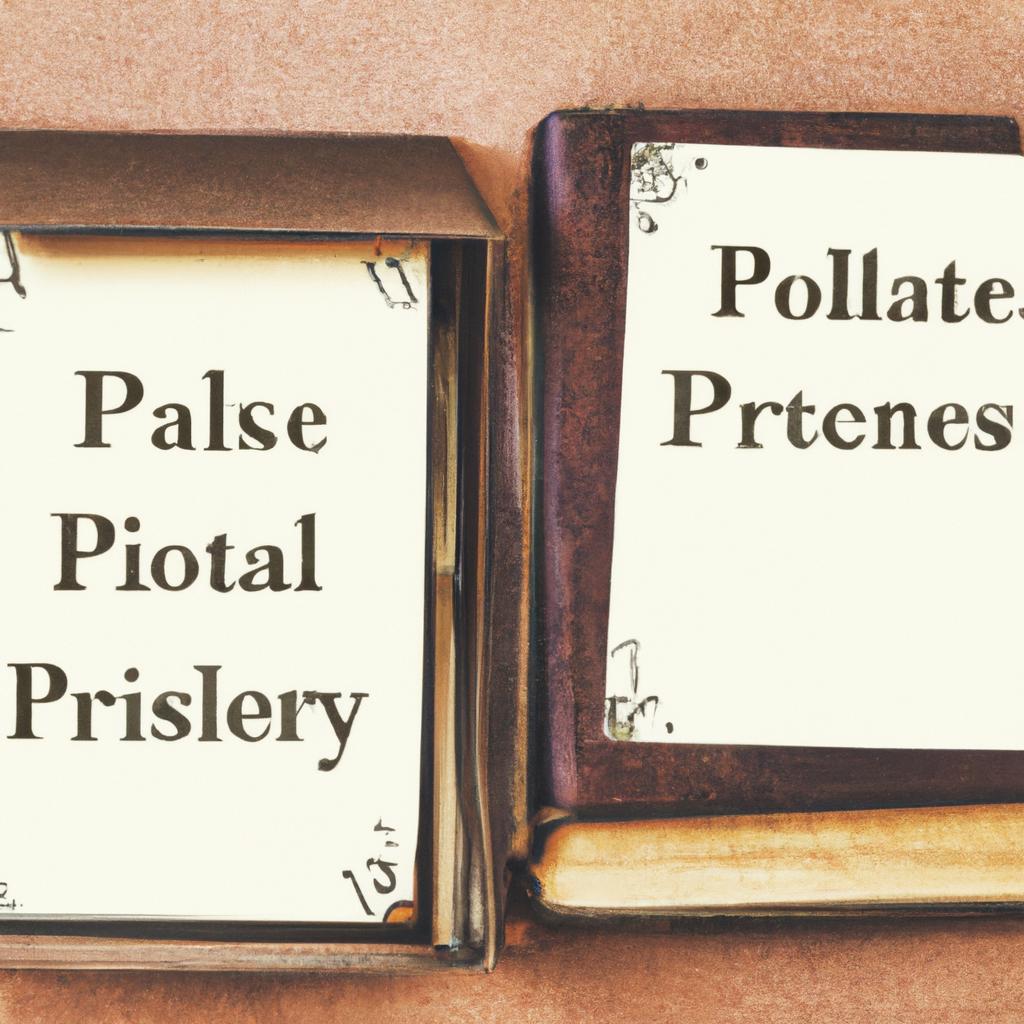In the intricate realm of estate planning and probate law, few matters are as delicate and complex as selling a house inherited from a deceased loved one. At Morgan Legal Group, located in the heart of New York City, our team of experienced attorneys specializes in navigating the intricate legal landscape surrounding the sale of inherited properties. From drafting Wills and trusts to advising on elder law matters, our firm is dedicated to providing expert guidance and support to individuals facing the challenge of selling a house they inherited. Join us as we unravel the legal intricacies of this important process, and explore the key considerations that must be taken into account when navigating this emotionally charged transaction.
Key Considerations When Selling an Inherited Property
When it comes to selling an inherited property, there are several key considerations that you need to keep in mind to ensure a smooth transaction. One important factor to consider is the condition of the property. Before listing the house for sale, it’s essential to assess any repairs or renovations that may be needed to increase its market value. Hiring a home inspector to identify any issues with the property can help you make informed decisions moving forward.
Another crucial consideration is understanding the tax implications of selling an inherited property. Depending on the value of the property and the length of time it has been held, there may be capital gains tax obligations to consider. Working with a knowledgeable tax professional can help you navigate the complexities of tax laws and ensure that you are in compliance with all regulations. Additionally, consulting with an experienced real estate agent who specializes in selling inherited properties can help you maximize your profits and streamline the selling process.

Navigating the Probate Process for Selling a House
When it comes to you inherited, there are several important steps that need to be taken to ensure a smooth and successful transaction. One of the first things you will need to do is determine if the property needs to go through probate before it can be sold. This will depend on how the property was titled and who the beneficiaries are. If the property does need to go through probate, you will need to file a petition with the court to open the probate estate.
Once the probate process has been initiated, you will need to gather all the necessary documentation, such as the death certificate, will, and any other relevant paperwork. It is also important to make sure that all taxes and debts related to the property are paid off before selling it. Working with an experienced probate attorney can help guide you through the process and ensure that everything is done correctly and in accordance with the law.

Maximizing Profit When Selling an Inherited Home
When it comes to selling a house you inherited, there are several factors to consider in order to maximize profit. One of the first steps is to assess the market value of the property. Conducting a comparative market analysis can help determine the fair market price to list the home at. It is also important to take into account any necessary repairs or renovations that may be needed to increase the property value and attract potential buyers.
Additionally, hiring a real estate agent with experience in selling inherited homes can be beneficial in navigating the complicated process and gaining access to a larger network of buyers. It is also crucial to be transparent with potential buyers about the inheritance, as this can affect taxes and regulations surrounding the sale of the property.

Practical Steps for Selling a House You Inherited
When it comes to selling a house that you inherited, there are several practical steps that you should consider taking to ensure a smooth transaction:
- Evaluate the property: Before listing the inherited house for sale, it is crucial to assess the condition of the property and determine if any repairs or renovations are needed.
- Consult with a real estate agent: Hiring a professional real estate agent with experience in selling inherited properties can help you navigate the complexities of the process and ensure that you get the best possible price for the house.
- Obtain a professional appraisal: Getting an appraisal from a licensed appraiser will give you an accurate estimate of the property’s market value, which will help you set a realistic asking price.
Additionally, you may need to:
- Clear the title: Make sure that the title of the inherited house is clear of any liens or disputes that could delay or complicate the sale.
- Consider tax implications: Selling an inherited property can have tax implications, so it is important to consult with a tax professional to understand your obligations and potential tax consequences.
Q&A
Q: What do I need to do if I inherit a house and want to sell it?
A: Selling an inherited house can be a complex process, but with the right guidance, it can be a smooth and profitable experience.
Q: What are some important steps to take before selling an inherited house?
A: It’s crucial to first determine the value of the property, settle any outstanding debts or taxes, and discuss any legal requirements with an attorney.
Q: How can I find the right real estate agent to help me sell the inherited house?
A: Look for an agent with experience in selling inherited properties, who can provide valuable insight into the market and help you navigate the selling process.
Q: What are some common challenges I may face when selling an inherited house?
A: Inherited properties may come with emotional attachments, legal complexities, and maintenance issues that can make the selling process more challenging.
Q: Are there any tax implications to consider when selling an inherited house?
A: Yes, there may be capital gains taxes to account for, depending on the value of the property and the length of time it was held before being sold.
Q: How can I best prepare the inherited house for sale?
A: Consider making necessary repairs and upgrades, decluttering and staging the property, and working with a professional photographer to showcase its potential to potential buyers.
Closing Remarks
In conclusion, selling a house you inherited can be a complex and emotional process. From dealing with legalities to navigating family dynamics, it requires careful consideration and planning. However, with the right approach and support, it can also be a rewarding and empowering experience. Whether you choose to keep the property, renovate it, or sell it, remember to honor the legacy of your loved one and make decisions that align with your own goals and values. Whatever path you choose, may it lead to a brighter future filled with new possibilities. Good luck on your journey of selling the house you inherited.
 Selling a house can be a challenging process, but it can become even more complicated when you inherit a property from a loved one. While it may be a bittersweet feeling to receive an inherited home, there are various practical and financial considerations to take into account when deciding whether or not to sell it.
Selling a house can be a challenging process, but it can become even more complicated when you inherit a property from a loved one. While it may be a bittersweet feeling to receive an inherited home, there are various practical and financial considerations to take into account when deciding whether or not to sell it.
Inheritance can happen unexpectedly, leaving you unprepared for the responsibilities that come along with inheriting a house. However, understanding the process and having a plan in place can make the selling journey smoother and less overwhelming. In this article, we will discuss everything you need to know about selling a house you inherited, including the benefits, practical tips, and case studies.
Benefits of Selling an Inherited House
1. No Emotional Attachment: One of the biggest advantages of selling an inherited house is that you do not have any emotional attachment to it. This allows you to make practical and logical decisions without being swayed by sentimental factors.
2. Avoid Financial Burden: Maintaining an inherited home can come with financial responsibilities, such as property taxes, insurance, and repairs. Selling the house can alleviate this burden and provide you with financial relief.
3. Immediate Cash: Inheriting a house can bring about a sudden influx of cash, which can be beneficial if you have pressing financial needs. By selling the house, you can have immediate access to the funds without having to wait for a lengthy probate process.
4. Avoid Family Disputes: Inheriting a property with multiple heirs can lead to conflicts and disputes. By selling the house and dividing the profits, you can avoid any potential family drama and maintain healthy relationships.
Practical Tips for Selling an Inherited House
1. Understand the Probate Process: In most cases, when you inherit a house, it will go through a legal process known as probate. This is the process of transferring ownership of the property from the deceased to the heirs. It is essential to understand the probate laws in your state and the timeline for completing the process.
2. Determine the Property’s Value: Before putting your inherited house on the market, you need to determine its accurate value. This can be done by consulting a qualified real estate agent, conducting a property appraisal, or researching recent sales of similar properties in the area.
3. Consider the Tax Implications: Inheriting a house may also come with tax implications. Consult with a tax professional to understand any potential tax liabilities you may face by selling the property.
4. Make Necessary Repairs: Depending on the condition of the inherited house, you may need to make some repairs or renovations before putting it on the market. This can help attract potential buyers and increase the property’s value. However, be mindful of your budget and avoid over-improvements that may not provide a return on investment.
5. Hire a Professional Real Estate Agent: Selling a house can be a complicated and time-consuming process. Hiring a reputable real estate agent can help ease the burden and ensure a smooth sale. Look for an agent with experience in selling inherited properties and a track record of successful sales.
Case Studies
Jack inherited a house from his grandparents, but he already had a family home and did not have the time or resources to maintain two properties. He decided to sell the inherited house and was able to use the proceeds to pay off his mortgage and still have significant funds left over.
Samantha inherited a vacation home from her parents, and she lived across the country. She had no interest in keeping the property, so she sold it and used the profits to buy a new home near her family.
First-Hand Experience
“I inherited a house from my mother, and while it was a difficult decision to sell, I knew it was the right one. The property needed a lot of repairs, and I did not have the time or resources to take care of it. By selling the house, I was able to pay off some debts and have a substantial amount of savings left.” – Sarah, 36, New York.
Conclusion
Selling a house you inherited can provide various benefits, such as avoiding emotional attachment, financial burden, and family disputes. However, it is essential to understand the probate process, determine the property’s value, consider tax implications, and make necessary repairs before putting it on the market. By following these practical tips and seeking professional help, you can have a successful and stress-free selling experience. Remember, it is ultimately your decision to sell or keep the inherited house, so take the time to consider your options and make the best choice for your situation.






